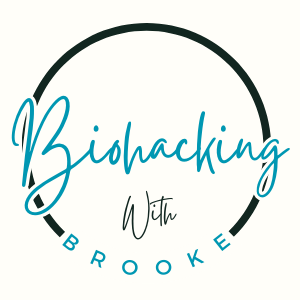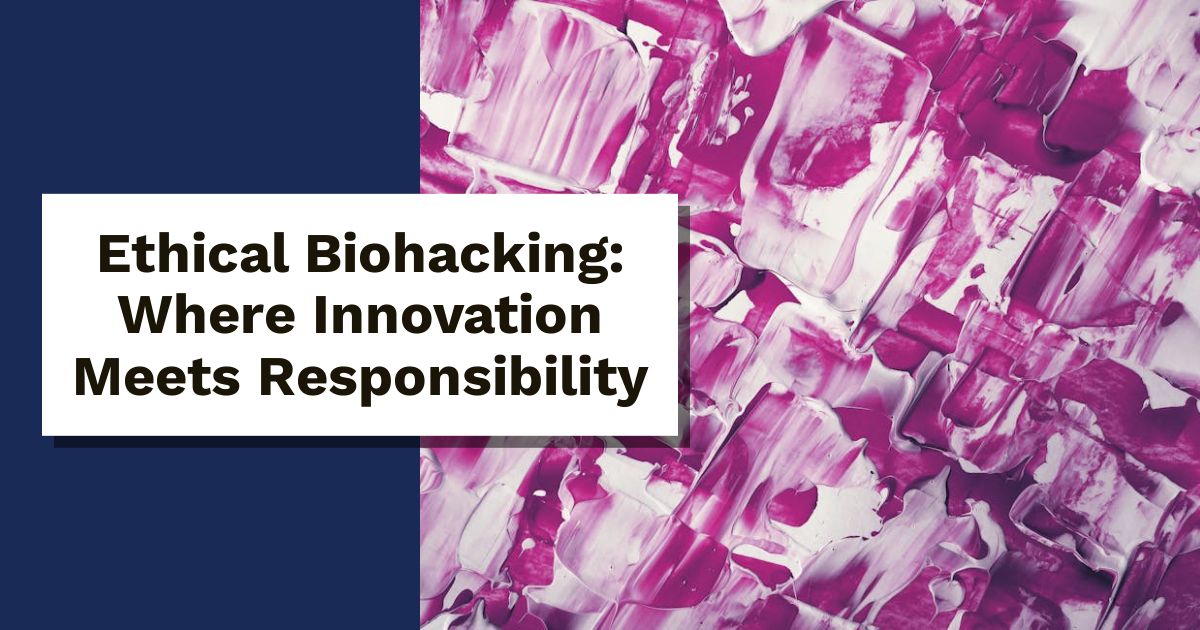Biohacking isn’t just for sci-fi lovers or tech geeks anymore—it’s becoming a part of daily life. From optimizing sleep to tracking blood sugar, people are tweaking their bodies for better health and performance. But with great power comes, well, tricky questions. How far is too far? When does self-experimentation cross the line into something unethical? This post looks at the fine line between personal innovation and responsibility, so you can hack smarter—and ethically.
Understanding Biohacking
Biohacking—sounds cool and futuristic, doesn’t it? It’s like giving your body a software update, but instead of coding, you’re tweaking your biology. Whether it’s by eating better or using gadgets to track your data, biohacking is all about finding ways to improve your body’s performance and longevity. Let’s break this down into what it means and how people are doing it.
What is Biohacking?
Biohacking is the art and science of modifying your biology to enhance your health, happiness, and overall performance. Think of it as becoming your own experimental lab. You try things like optimizing nutrition, tweaking sleep patterns, or even using tech like wearable devices to monitor progress. Some folks might call it “life hacking for your body.”
For example:
- Tracking Health Metrics: Apple Watches or Oura Rings can keep tabs on your heart rate or sleep cycles.
- Diet Tweaks: Ever tried intermittent fasting or adding a daily green smoothie to feel sharper?
- Supplements: Supplements like Omega-3s or magnesium are common for biohackers looking to enhance focus or energy.
Biohacking is fueled by curiosity and a desire for self-improvement. But of course, some methods are more extreme than others. Want to go deeper? Learn more about what biohacking is here.
Types of Biohacking
Biohacking isn’t one-size-fits-all. It’s a mix of methods, each catering to different goals or comfort levels. Here are the three main types:
Nutritional Biohacking
This is about what you put in your body. Food, vitamins, supplements—it’s all fair game. Nutritional biohackers swear by diets like keto or paleo, and some dive into nutrigenomics, which tailors diets based on your genetic blueprint.
Here are a few examples:
- Intermittent Fasting: Align your eating windows to improve metabolism.
- Superfoods and Supplements: From adaptogens like ashwagandha to B-vitamins for energy.
Curious about how food can unlock your body’s potential? Explore nutritional biohacking here.
Tech-Based Biohacking
This is biohacking with gadgets. From fitness trackers to neurofeedback headsets, tech-based biohacking blends biology with innovation. Ever heard of transcranial direct current stimulation? Some swear it boosts focus and creativity.
Popular tools include:
- Wearables: Think Fitbits or continuous glucose monitors to track health data.
- Infrared Saunas: For muscle recovery and relaxation.
- Brain Stimulation Devices: Tools like Muse headbands help improve focus during meditation.
You can dive into more examples of tech-based biohacking here.
DIY Biology
Also known as “biohacking’s Wild West,” DIY biology involves experimenting with your own biology, sometimes using unconventional methods. It’s for the bold and the brave. Grinders, for instance, experiment with implants or devices that give them “extra senses” like magnetic fingertips.
A few examples:
- Genetic Editing: CRISPR kits are making their way into garages.
- Implants: Chips under the skin for contactless payments—yes, it’s a thing.
For those intrigued by the experimental side, look into DIY biohacking concepts here.
Whether it’s food, tech, or DIY tinkering, biohacking feeds into a larger quest to feel better, live longer, and push human boundaries. The question isn’t just “what can we do?” but also “what should we do?”
Ethical Challenges in Biohacking
Biohacking pushes boundaries, blending ideas from tech, biology, and DIY experimentation. But with innovation comes ethical hurdles. Whether it’s protecting safety, ensuring consent, or staying within legal frameworks, biohackers must consider the broader implications of their actions.
Safety Concerns
Playing scientist on your own body sounds exciting, but it’s not without risks. Biohacking, especially DIY biology, can lead to untested procedures or substances being used in unsafe ways.
For instance:
- Health Risks to the User: Genetic tinkering or unverified supplements can lead to long-term side effects or even fatal outcomes.
- Impact on Others: Infectious agents, even ones created unintentionally, pose public health concerns. No one wants to accidentally play Frankenstein.
- Lack of Expertise: Without the backing of trained professionals, experiments might result in botched outcomes.
These are not just hypotheticals. Experts warn that certain biohacking advancements, like genetic editing, carry unpredictable outcomes, even cancer risks. You can dive deeper into these issues here.
Informed Consent
Consent is a cornerstone of ethical science, but it’s often overlooked in biohacking. Some biohacking projects involve more than just the person performing them. Testing devices or substances on friends or volunteers? Make sure they understand—and fully agree to—the risks.
Here’s why informed consent matters:
- Clarity on Risks: Anyone participating should know all possible outcomes, good or bad.
- Autonomy: Without proper consent, experimentation crosses into ethical gray zones.
- Legal Protection: Not securing informed consent could lead to liability issues down the road.
Regulatory bodies like the FDA stress the importance of informed consent to curb unsafe practices. Learn more on this topic here.
Regulation and Legality
Legally, biohacking is a mixed bag. Some methods, like using wearable tech, are perfectly fine. Others, like DIY genetic editing, tread on shaky ground—or are outright prohibited. For example, California passed a law requiring warnings on DIY CRISPR kits, stressing that they’re unsafe for self-use.
Key points:
- Legal Gray Zones: Many biohacking practices aren’t explicitly illegal but lack regulation.
- Global Variations: Laws differ widely around the world, creating confusion for biohackers crossing borders.
- Enforcement Issues: Even when laws exist, enforcing them (in garages or home labs) is challenging.
For those navigating this complicated landscape, understanding current regulations is crucial. Learn about how laws are shaping biohacking here.
Positive Ethical Practices
In the ever-evolving world of biohacking, establishing positive ethical practices is vital. By nurturing community involvement, promoting transparency in experimentation, and prioritizing health and safety, biohackers can ensure that their pursuits enhance well-being without compromising ethical standards.
Community Involvement
The biohacking community thrives on collaboration and shared knowledge. Engaging with others helps cultivate a culture of safety and accountability. Here’s how to get involved:
- Join Online Forums: Platforms like Reddit and specialized biohacking communities allow individuals to share trials, successes, and failures. An open exchange of information strengthens collective learning.
- Participate in Workshops: Attend local meet-ups or workshops to learn new techniques and safety protocols from experienced biohackers. These sessions often cover essential aspects of health and ethics.
- Contribute to Open-Source Projects: Many biohackers work on projects that benefit from community input. Sharing resources or contributing code can lead to groundbreaking innovations. Check out community efforts like Genspace, which promotes hands-on biotechnology learning.
Embracing community involvement fosters a supportive environment for experimentation while mitigating risks.
Transparency in Experimentation
Transparency is crucial in biohacking. When practitioners are upfront about their methods and results, it builds trust and encourages responsible practices. Here’s why this matters:
- Open Sharing of Data: By publicly sharing results, biohackers can help others learn from their experiences. This includes both successes and failures, which are equally valuable for future endeavors.
- Clear Documentation: Keeping detailed records of experiments ensures that others can replicate or learn from your methods. This contributes to a culture of accountability.
- Engaging in Peer Reviews: Sharing findings with peers for review can improve the quality of biohacking research. This collaboration promotes safety and innovation.
Consider reading about the ethical implications of transparency in biohacking to understand its importance further.
Prioritizing Health and Safety
At the core of biohacking lies the goal of enhancing health. Biohackers must prioritize their well-being to avoid adverse effects. Here are essential practices to keep in mind:
- Research Before Experimenting: Always investigate new methods thoroughly before trying them out. Understanding the potential risks assists in making educated decisions.
- Consult Professionals: When experimenting with supplements or radical changes, discussing plans with healthcare professionals can provide valuable insights. Their expertise can guide safer practices.
- Listen to Your Body: Self-awareness is vital. If something doesn’t feel right, don’t hesitate to stop or adjust your approach. Your body knows what it needs.
Following these health and safety guidelines ensures that the journey of biohacking remains beneficial. For more advice on safe biohacking practices, you can explore The Truth About Biohacking.
In summary, implementing positive ethical practices in biohacking is essential for sustainable growth and community well-being. By fostering a collaborative environment, maintaining transparency, and prioritizing health, biohackers can navigate the complexities of innovation responsibly.
The Future of Ethical Biohacking
As biohacking evolves, ethical considerations are increasingly influenced by technological advancements. These innovations can reshape what it means to engage responsibly in self-experimentation. Here’s a closer look at how technology could change ethical norms in biohacking.
Technological Advancements
With every leap in technology, biohacking takes on new dimensions. What used to be a niche practice is now blossoming into a mainstream movement thanks to cutting-edge tools and platforms. But with these advancements, ethical concerns must also grow.
Imagine using AI algorithms to optimize personal health data. This means you could receive tailored advice for diet, exercise, or mental health. Sounds great, right? But it raises pressing questions:
- Data Privacy: Who owns your genetic data? With platforms analyzing your biology, safeguarding this information is crucial. Unregulated use could lead to misuse.
- Widespread Access: Increased accessibility to biohacking tools means more people can experiment. However, this also means untrained individuals might engage in high-risk practices.
- Regulatory Oversight: As techniques like CRISPR gain traction, how will regulations adapt? Striking a balance between innovation and safety is critical.
These points are important considerations as tech continues to redefine biohacking. The conversation cannot solely focus on possibilities. Ethical frameworks must accompany advancements.
For more insights on the implications of biohacking, dive into this article on the future of human enhancement.
Building a Responsible Community
A supportive and informed community can significantly influence ethical biohacking. When individuals share experiences, they remain accountable for their actions and promote safer practices. Here are several ways community involvement can foster responsibility:
- Peer Reviews: Engage with others who can provide feedback on your methods and findings. This process encourages ethical scrutiny and informed practices.
- Educational Workshops: Local meet-ups can be a source of knowledge. Participating helps individuals learn best practices and advance their skills responsibly.
- Online Forums: Platforms like Reddit foster discussions about biohacking experiences. Connecting with others creates an environment that prioritizes safety and ethical standards.
Being part of a community means more than just exchanging ideas; it’s about creating a culture of support. When everyone prioritizes ethical considerations, the entire biohacking landscape benefits.
For a broader view of community responsibility, check out this perspective on balancing innovation with ethics in biohacking.
Conclusion
Biohacking carries immense potential, but with it comes a set of ethical responsibilities. Understanding safety, informed consent, and the legal landscape is key to making informed choices. The choices you make should prioritize health, transparency, and community engagement.
As you explore your biohacking journey, think about how your actions affect not just yourself but those around you. Are you ready to be part of an ethical biohacking movement?
Your insights and experiences can shape a safer, more responsible future for everyone in this growing community. What will your next steps be?
Brooke is a rock-climbing 🧗♀️, tennis-playing 🎾, biohacking 🧬 bookworm 📚 on a mission to unlock the secrets of health, longevity, and living life to the fullest 🌟. When she’s not scaling cliffs, hitting the courts, or testing out the latest hacks, you’ll find her nose in a book or adventuring with her four-legged best friend 🐕 by her side. With a knack for turning science into simple, actionable tips, Brooke’s writing is your guide to hacking your biology and living your best, most vibrant life!


